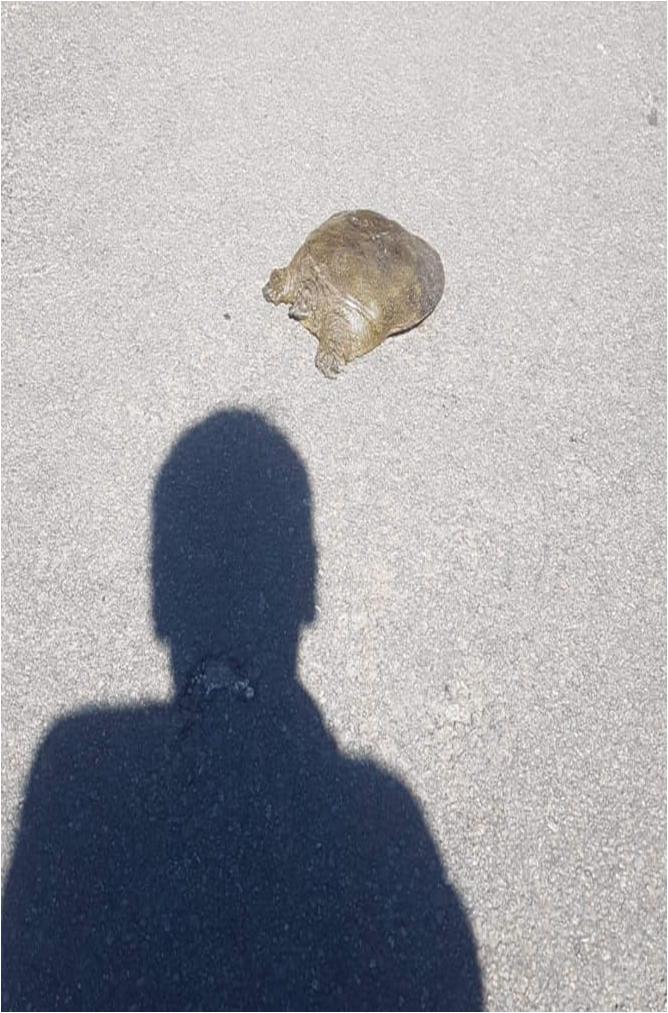
Pet owners warned by wildlife experts
The Manx Wildlife Trust is urging the public to think carefully before buying exotic pets, after sightings of terrapins and turtles have been reported in areas around the Island.
Injebreck, Scarlett and Ballaugh are just a few of the places these animals have been found to be abandoned by their owners.
It is what the Manx Wildlife Trust is calling a growing trend of unwanted pets being dumped into local ponds and waterways.
They say it is a cause for concern on two counts, as it not only causes stress and suffering to the animal, but has a detrimental effect on the Island's native ecosystem.
'Negative impact'
'Few studies have been completed as to the exact impact released turtles and terrapins can have, but they have no natural predators to control their numbers and as such will become the top of the food chain in a pond.They will readily eat any water plants meaning less for our native species as well as depleting oxygen levels within the ponds.
'They will also consume frogspawn, frogs, invertebrates such as dragonfly larvae and larger specimens may even consume ducklings. The terrapins and turtles may carry harmful fungus, even spread Hexamita protozoan to birds and the deadly Ranavirus to frogs.'
MWT also stressed that these creatures need enough UV light to be able to extract calcium from their food to survive and so being exposed to winter on the Isle of Man it is likely they will become blind and therefore unable to feed.
'Releasing them into the wild is to subject them to a cruel death. We are urging the public to think very carefully about buying a terrapin or turtle for a pet, they can live for 25 years and certainly grow to a much larger size than the little coin sized specimen you bought from the pet shop.'
'Abhorent and illegal'
Richard Selman who is the Senior Biodiversity Officer at DEFA reiterated that abandoning a pet is a crime.
'The release of pets in the wild is abhorrent and illegal, both for the protection of Manx wildlife and the welfare of the animal, which finds itself in an unknown area, often in a climate which does not suit it and having no experience of fending for itself.'
Though it is not just turtles that have been reported, DEFA has dealt with rabbits, ducks, cockerels, goats, peacocks and even snakes and newts found released in the wild.

A soft-bodied turtle was recently pictured on the road at Injebreck reservoir.
Other cases
Dr Selman admits policing the problem is difficult, but alludes to previous incidents where prosecutions were made.
'The release of giant Flemish rabbits in a plantation in 2016 resulted in a fine in court and the animals were recaptured. A grey squirrel release was prosecuted successfully some years previous but the animal was never found and is now presumed dead. Terrapins and turtles can, however, live for many decades and eat a wide range of native species living in a pond, affecting the pond ecology over a long period.
Responsibility
'Anyone importing and keeping exotic species takes on responsibility for their welfare and must find out what they need to adequately care for them throughout their life. If rehoming is necessary then this should be arranged but releasing captive bred animals into the wild is not acceptable and can cause issues which other people end up dealing with.
'People must take responsibility for their animals and stop abandoning them in the Manx countryside.'
If you see a turtle or terrapin in the wild, you're asked to please follow the advice given at http://www.manxspca.com/wild-animals/.
Notify either the MSPCA so it can be recovered and the Manx Wildlife Trust and/or the Department of Environment of your find.


 Commissioners' disappointment as Cregneash bus service 'permanently withdrawn'
Commissioners' disappointment as Cregneash bus service 'permanently withdrawn'
 Government needs to 'find a better way of keeping in contact' with Manx students
Government needs to 'find a better way of keeping in contact' with Manx students
 Healthcare, workplace pensions and horse trams on April Tynwald agenda
Healthcare, workplace pensions and horse trams on April Tynwald agenda
 WWII veteran James Fenton celebrates 103rd birthday
WWII veteran James Fenton celebrates 103rd birthday
